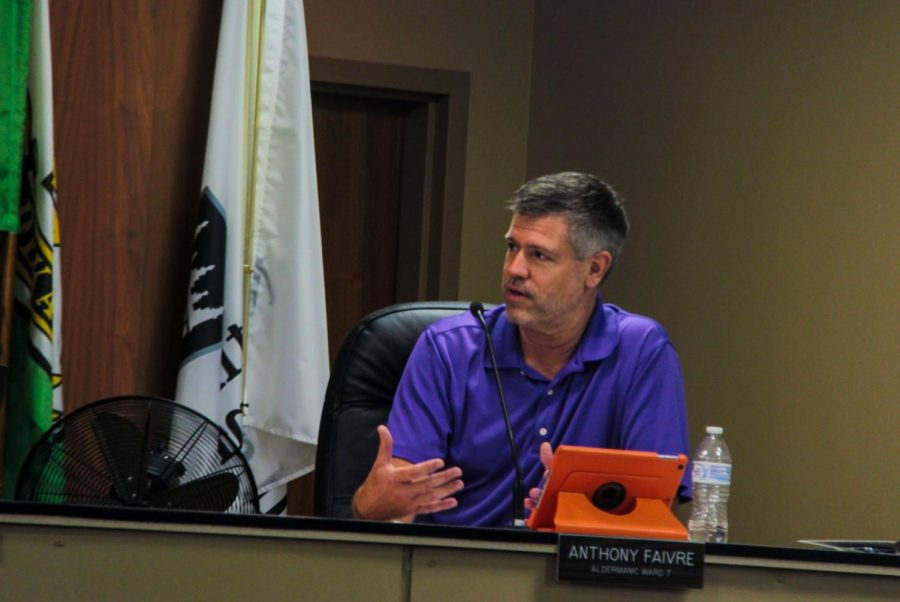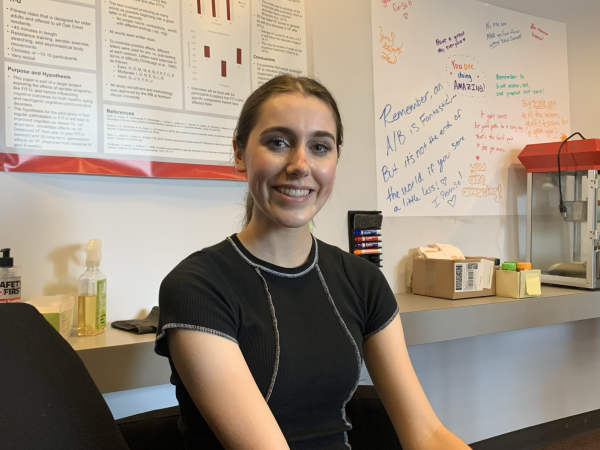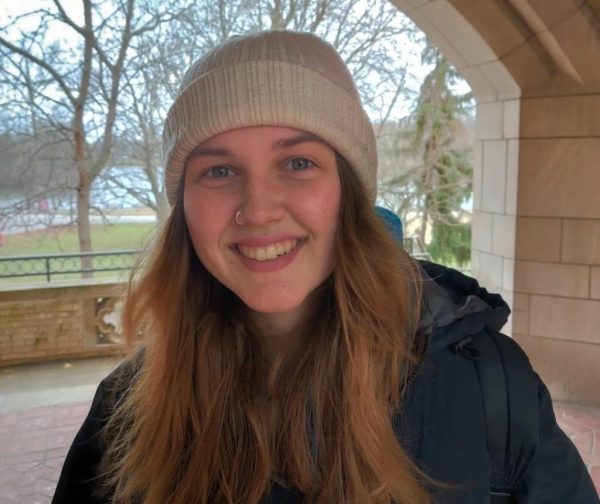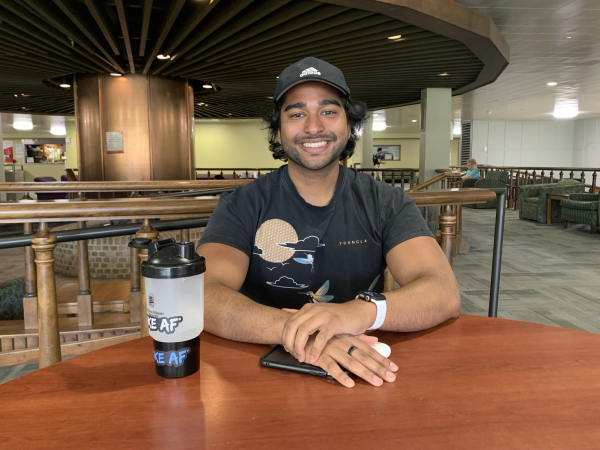City Council considers creating a third TIF, vote to reevaluate next hearing
Seventh Ward Alderperson Anthony Faivre comments during a discussion between council members when City Council met Aug. 27.
November 29, 2018
DeKALB — DeKalb City Council met Monday to decide on the creation of tax increment financing [TIF] 3, despite issues with TIF 1 and TIF 2.
The Council ultimately decided not to vote on the proposal. As a result of some council members feeling there was insufficient information, Second Ward Alderperson Bill Finucane proposed to reasses the prosal at the next meeting.
A TIF is a funding tool that involves taking a city’s taxes and redirecting them to use for the development of the city, according to the Annual Financial Analysis website for the city of Chicago. Development officials can use this money to make new buildings or repair and improve existing ones. This method of funding is granted when the city developments are estimated to increase property value.
Jason Michnick, economic development planner for the city of DeKalb, said the use of a TIF aims to enhance transparency to the people in DeKalb and neighboring cities. Michnick said DeKalb development officials gather previous files on projects and present those files to the city council. These files aim to state the amount of money they receive from city taxes and announce what projects the money will go toward.
Although there has been a surplus of money from TIF 1 and TIF 2, Michnick encouraged the Council to approve the creation of TIF 3. Michnick said there are possible projects development officials are currently exploring, including the Egyptian Theatre, 135 N. Second St.
DeKalb resident Mark Charvat wanted clarification on the possibility of the misspending of $11.25 million from a previous TIF. Charvat said Mayor Jerry Smith made a motion to continue with a TIF without the approval of First Ward Alderperson David Jacobson. Charvat said he was upset the mayor did not take into account everyone else’s opinions and advice on the TIF.
“I respect our first ward [alderperson] so much, but I felt given what I knew at that time and what I felt at that time, my voting as I did and ritually passing this on the first reading, we were moving in the right direction,” Smith said.
Smith said he is willing to communicate with anyone to fully understand how TIF works and to make the best decision possible for the city of DeKalb.
City Council members were conflicted whether or not to approve the creation of the TIF. Some council members agreed to approve the TIF and continue to develop and improve DeKalb, while others didn’t.
“The creation of this TIF really does focus on more what the TIF was intended for,” Third Ward Alderperson Michael Marquardt said. “I appreciate all the work that was done with Renew DeKalb.”
Other members believed having a surplus could create problems in the future.
Seventh Ward Alderperson Anthony Faivre and Sixth Ward Alderperson Mike Verbic voiced concerns about surplus from previous TIFs. Verbic voted not to go forward with TIF 3.
Michnick said the city has not declared a use for the funds in TIF 2. He said if there is no action taken by Dec. 31, $2.87 million in TIF would automatically become a surplus.
Faivre is against the transfer of $11.25 million and said he would rather save the $2.87 million surplus from TIF 2. Faivre suggested reviewing every five years as a possible solution to generate the estimated revenue and avoid having a surplus.
“We have $2.87 million that we want to spend by the end of the year, and we just can’t find a project to spend it on in TIF 2, which is kind of sad,” Faivre said.
Due to a surplus in the past, the City Council debated if the city should take more money or use what they have first. Another concern was about the small amount of revenues made from past TIF projects, which was not expected before starting the project.
Having a surplus in a TIF can result in limited to no funds in the future, according to the Annual Financial Analysis website for the city of Chicago. If the money given to a city is not used after a certain time, it can prevent the city from receiving a TIF in the future. Overall, constantly having a surplus and returning a TIF can lead to a frozen account for a city until the previous TIF is paid off from the revenue.














